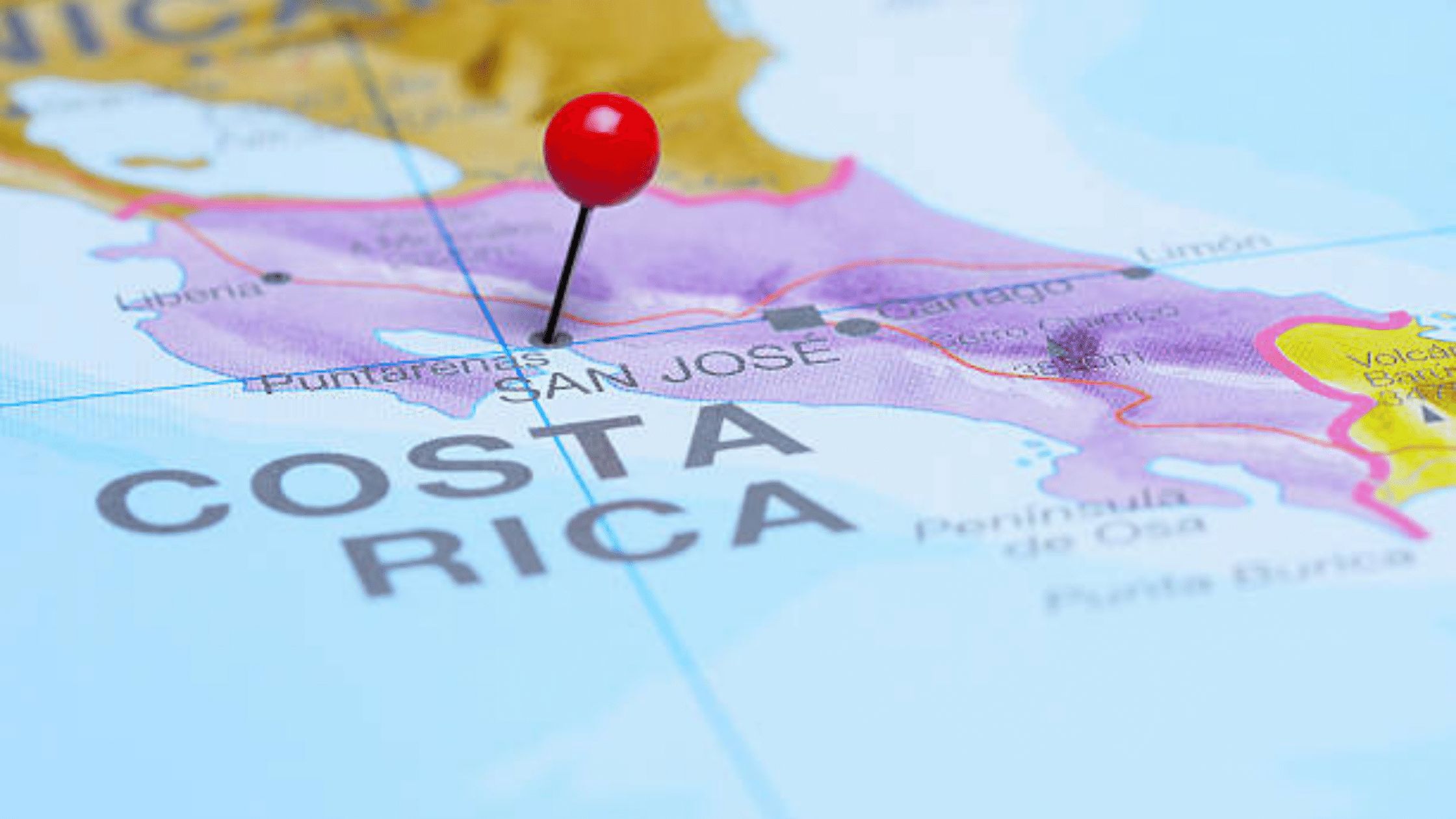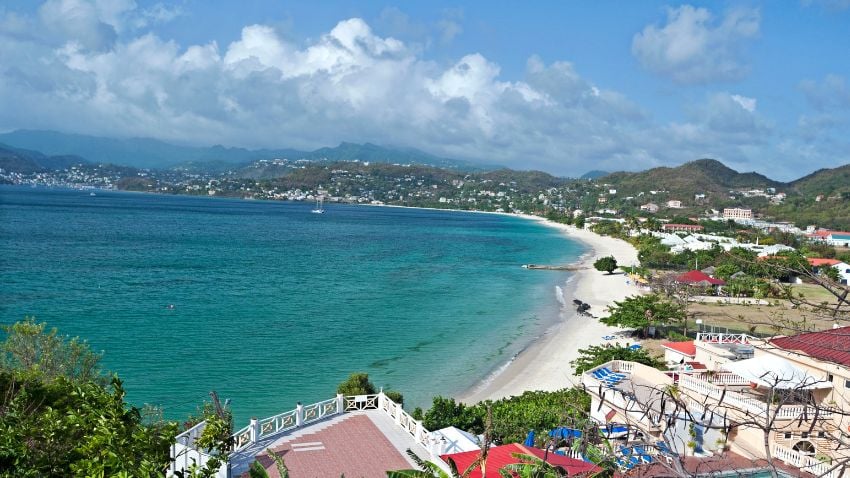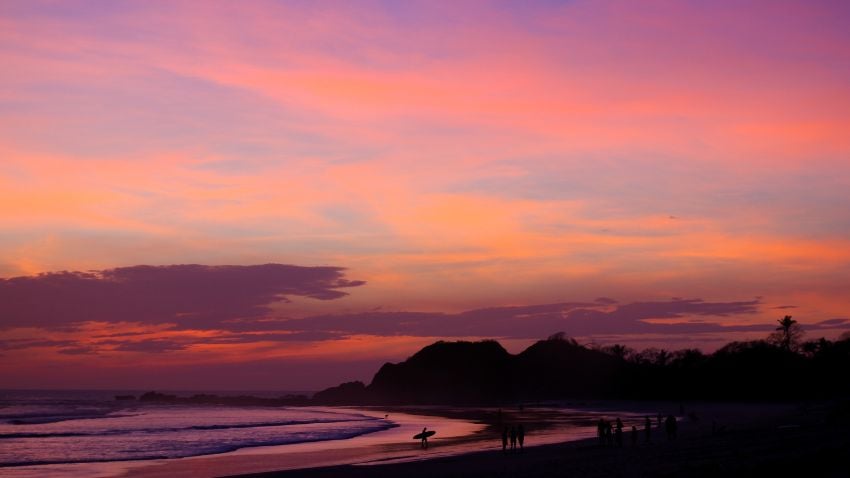Best Cities To Live In Mexico In 2026
Mexico remains one of Latin America’s most compelling destinations, especially for North Americans. More than a million expats call it home, and tens...

Costa Rica is a tiny Central American country with rugged terrain, lovely beaches, and plenty of wildlife. The cost of living in Costa Rica is slightly lower than in the United States, and their currency is the colon. They are also one of 39 countries and territories around the world that have no military whatsoever.
As an expat location, Costa Rica does have some advantages. There is a decent-sized expat community, you can find houses and hotels with modern amenities, and it is still close enough to the USA and Canada that you are usually only a short flight or two away if you want to visit friends or family.
And the weather and climate are pretty good. At the same time, there are some drawbacks. Costa Ricans enjoy a very leisurely way of life, which can be good, but when you need stuff to get done it can be very frustrating at the same time. And dealing with the Costa Rican bureaucracy can be a frustrating and time-consuming process. And given the tropical climate, insects are everywhere, so keeping everything scrupulously clean is an absolute must.
Relevant content: Getting Residency In Costa Rica Is Pretty Easy
Most people who enter Costa Rica do so simply by showing up. Individuals from Europe, Canada, and the USA are all visa-exempt, so they can enjoy up to three months' stay in Costa Rica without any issues. In fact, Costa Rica has a fairly liberal tourist visa policy, where you can simply go on a border run to extend your tourist visa if you want, although that can get complicated because you need proof of onward travel, and every second border run you need to spend fifteen days out of the country.
So the next option, aside from visiting on your visa-exempt status, is to get a temporary residency permit. Two common temporary residence permits are the Rentista Visa and the Pensionado Visa.

Proof of clean criminal record is one of the requirements to apply for the Rentista Visa
A rentista visa is essentially designed for a “person of means”. In order to qualify, you need to demonstrate that you have either a steady income of $2,500 USD a month.
In the alternative, you can set up a financial arrangement with a local bank whereby you transfer an amount of $2,500 a month to a Costa Rican bank. During your stay in Costa Rica, you will also be required to pay into the C.C.S.S., which is essentially the Costa Rica version of social security, at a rate of 9% of your monthly income.
Here is the requirements and the necessary documentation to apply for a temporary residence visa:
Two passport photos
Proof of clean criminal record/background check
Fingerprint records
A photocopy of your passport, you will have to present the original as well
Certified copy of your birth certificate
Certified copy of marriage certificate if you are married
Please note that all documents must be translated into Spanish and apostilled, and it can take anywhere between six to fifteen months
A rentista visa does not allow you to work in Costa Rica, although you can invest in a business. This visa allows you to stay in Costa Rica for a duration of two years, and it can be extended once it expires. In order to extend your rentista visa, you will need to demonstrate that you have spent at least four months out of each year in Costa Rica itself. You will also need to prove that your income is still in place. After three years of temporary residency, you can apply for permanent residency. It is important to note that permanent residency is individual, so your dependents are not automatically included.

You can enjoy surfing, snorkelling, fishing or simply relaxing on the beach in Costa Rica
The pensionado program is more forgiving with its standards of required income. All you have to do to qualify is demonstrate that you have a lifelong income of $1,000 USD a month (say from a pension). It is not enough to show that you have your own retirement savings or investments in the stock market, although certain types of annuities (again, guaranteed income) may qualify. There is actually no minimum age requirement for this program, and you can bring along your spouse and any dependent children you may have as well.
The pensionado visa is good for two years as well. If you apply for a temporary residence visa from within Costa Rica, then you can stay until they rule on your application, you do not have to leave when your three months tourist visa is up.
Costa Rica's diverse landscape boasts tropical forests, stunning beaches, and active volcanoes, providing ample outdoor adventures and eco-tourism opportunities, so you can enjoy hiking, surfing, snorkelling, fishing or simply relaxing on the beach. The country offers many options for everyone. Another benefit of living in Costa Rica is enjoying everything this country has to offer, such as the well-developed infrastructure that includes modern highways, airports, and seaports. The country is also investing heavily in technology and innovation, with a growing tech industry and a focus on renewable energy.
Costa Rica's government has created a favourable environment for foreign investment. Real estate is a particularly attractive investment opportunity in Costa Rica, thanks to the country's stunning natural beauty and thriving tourism industry.
Costa Rica has launched the digital nomad visa. There are several advantages to obtaining the digital nomad visa in Costa Rica. Firstly, you are able to set up a local bank account and utilize your existing driver's license to operate a vehicle in the country. Additionally, the income requirements for the visa are relatively low and the application process does not demand excessive supporting documentation. Moreover, extending the visa for another year is straightforward in case one year of experiencing Costa Rica is insufficient. Furthermore, foreign income is tax-free whilst residing in Costa Rica.

With your digital nomad visa in Costa Rica you are able to set up a local bank account and utilize your existing driver's license to operate a vehicle in the country
Another popular temporary resident visa is the investor’s visa. With this program, you make an investment of $150,000 in a Costa Rican business or real estate (or a $100,000 in a forestry program) and you can qualify for an investor’s visa. It is important to note that the $150,000 in real estate can also include vehicles like a car or even a boat, as well as more obvious choices like a house or a farm, or a vacant lot.
Related content: Why Getting Your Panama Permanent Residence is So Important
.jpg?width=2240&name=Costa%20Rica%20(3).jpg)
Bridge in Monteverde, Costa Rica
Your driver's license from your home country will be valid for 90 days from when you enter Costa Rica. Once you become a temporary resident then you can apply for a Costa Rican driver's license, but until you become a temporary resident your driver's license will expire every 90 days. And be careful on the road, Costa Rican drivers are among the worst in the world. And while the roads inside the capital are pretty well maintained, once you get outside of the capital things get a lot rougher.
Costa Rica has a territorial tax system, so you only have to pay taxes on income that is sourced from within Costa Rica. So if you are retiring on a pension that you earned in the USA or Canada, then you do not have to pay any income tax on that pension. And if you do any freelance work online or have a business back home, then you won’t pay any taxes there either, at least not to the Costa Rican government.
Property taxes are a flat 0.25% of your property’s appraised value and are paid in quarterly installments. There is also a 13% VAT tax and an income tax with a top rate of 25%.
Related article: The Basics Of How To Get A Second Passport Or A Second Residency
Costa Rica is a beautiful country. With amazing weather, and lots to see and do, I know why people leave Canada and the USA and immigrate to Costa Rica. Getting a visa to stay long-term in the country is also not that hard to do. It takes some paperwork in your home country, and then you can head down and start the process.
You can also look at birth tourism as a way to get a new passport for yourself and your children. Each country has its own rules and regulations, and Costa Rica is no exception. Read our article on Top Countries For Birth Tourism.
If you want the best intel from the expat world, including profitable offshore opportunities, little-known tax-saving strategies, and hard-won insights on immigration, passports, and Plan-B residencies, all delivered to your inbox every single week, then join our daily correspondence, EMS Pulse®. Currently enjoyed by over 84,000 expats and expat-hopefuls worldwide. Fill in the form below to join our newsletter free:

Written by Mikkel Thorup
Mikkel Thorup is the world’s most sought-after expat consultant. He focuses on helping high-net-worth private clients to legally mitigate tax liabilities, obtain a second residency and citizenship, and assemble a portfolio of foreign investments including international real estate, timber plantations, agricultural land and other hard-money tangible assets. Mikkel is the Founder and CEO at Expat Money®, a private consulting firm started in 2017. He hosts the popular weekly podcast, the Expat Money Show, and wrote the definitive #1-Best Selling book Expat Secrets - How To Pay Zero Taxes, Live Overseas And Make Giant Piles Of Money, and his second book: Expats Guide On Moving To Mexico.

Mexico remains one of Latin America’s most compelling destinations, especially for North Americans. More than a million expats call it home, and tens...

South Korea is far more than K-pop and K-dramas. It is a country known for outstanding food, from bustling street markets to high-end dining, as well...

Asia is one of the most fascinating regions in the world for travel, offering an extraordinary mix of cultures, histories, and landscapes. From...